Why BJP govt’s move to rename 'India' as 'Bharat' has sparked controversy
By Meenakshi Gupta
The move to rename the world’s most populous country has stirred up a hornet’s nest. Speculation is rife that India may change its name to Bharat – a name used by the ruling Bharatiya Janata Party (BJP) to address the nation of diverse languages, religions and cultures.
The invitation to the state banquet organized for the G20 leaders in New Delhi earlier this month caught the attention of all and sundry. The invitation cards mentioned the name of the host country as Bharat instead of India, which came as a surprise to many.
Even before that, at the opening ceremony of the G20 summit on September 9, a placard placed in front of the Indian Prime Minister Narendra Modi had Bharat inscribed on it.
What’s in a name?
Bharat is a short form of the Sanskrit word Bharatvarsha, which means “the land of the descendants of the Bharatas.” Bharatas were one of the Vedic tribes mentioned in Rig Veda, an ancient Hindu text.
According to the Constitution of India, which came into force in January 1950, the country has two official names – India and Bharat – and both can be used interchangeably.
Article 1 of the Constitution says “India, that is Bharat, shall be a Union of States.”
“This article is very critical as it states what our nation will be called. What was the reason to float this debate, do they wish to now delete the name INDIA from the Constitution,” Kavita Srivastava, national president of PUCL, an NGO working for civil liberties in India told the Press TV website.
“Mr. Narendra Modi (the Prime Minister of India) needs to answer that. The trouble is that he rarely answers anyone’s questions,” she added.
In 2016, a public interest litigation (PIL) was dismissed by the Supreme Court of India which sought a direction that India be called Bharat for all purposes.
The petitioner was even admonished for wasting the time of the country’s apex court by filing a PIL on a “non-issue.” At that time even the BJP government said the name change was not warranted.
But things seemed to have changed now. Reports say that the special session of the Indian parliament that will mainly be attended by BJP parliamentarians from September 18 to 22 will be proposing a resolution on the name change.
Shadab Chouhan, national spokesperson of the Indian Peace Party, in conversation with the Press TV website, said the name Bharat has existed for centuries.
“Is the government trying to prove something new? The name Bharat has existed for centuries. Having done nothing for the actual welfare of the Indian masses, they think by this name-change gimmick they will fool us and give an idea that things are progressing,” he stated.
Why change the name?
Modi-led BJP government in New Delhi, since coming to power in 2014, has been on a name-change spree, renaming a number of cities and towns and roundabouts.
In 2014, soon after coming to power, Modi said India is troubled by “1200 years of slave mentality.”
India was a British colony for 200 years, so analysts say the Indian prime minister was also referring to the preceding Muslim rule as colonization.
According to historians, projecting Mughal rule as colonial is technically incorrect as it distorts the meaning of the term “colonialism”, where colonizers, while taking full control of the country exploit it economically. Mughals instead became an integral part of India and invested in the country.
In recent years, the Hindu nationalist government in India has aggressively undertaken the task of erasing the so-called “dark colonial past” of the world’s most populous country.
The name changes have not remained confined to erasing the colonial influence of the British but have also included changing everything that is linked to the rich Islamic heritage of India.
Allahabad and Faizabad, two important cities of India’s most populous state of Uttar Pradesh, were renamed Prayagraj and Ayodhya respectively.
Earlier this year, the cities of Aurangabad and Osmanabad in the state of Maharashtra were also rechristened as Chhatrapati Sambhaji Nagar and Dharashiv.
There have been proposals to rename the iconic Taj Mahal by the right-wing Hindu nationalists who claim it to be a Shiv temple.
BJP also has plans to change the name of Agra, the city that is home to the Taj Mahal, to Agartala. A plan to rename the capital of Gujarat, the home state of PM Modi, from Ahmedabad to Karnavati is also on the cards, according to reports.
Moreover, many roads and railway stations have been renamed in a bid to erase their Muslim identity to disempower the Indian Muslims and deny them a share in their country's past.
However, Srivastava insists that the name India is not foreign, contrary to what the BJP claims.
“India is derived from the river Indus, people living along and beyond the Indus, there is nothing western about it. Indus has been pronounced differently civilizationally, as Sindhu/ Hindu/ Indu, it is connected to age old description of the region,” she told the Press TV website.
History, the first casualty of politics
The right-wing BJP government has not confined itself to renaming places as names represent identity and heritage but it has also undertaken the mission of rewriting history textbooks.
In the history books taught in schools, chapters on Muslim rulers of India i.e. the Mughals have been completely removed under the incumbent government. The Hindu rule is glorified and Muslim influence is wiped out thus presenting a distorted version of the past to the younger generation.
The Indian government has gone on to omit the part that mentions Nathu Ram Godse as the killer of the father of the nation, Mahatma Gandhi.
Godse, a Hindu nationalist, was a worker of the Rashtriya Swayamsevak Sangh, (RSS), the militant parent organization of the ruling party.
In addition to deleting the parts on the formation of Congress, the oldest national party of India, parts on heterogeneity, diversity and secularism have also been removed from school books.
“The government is following Godse, destroying the image of India, the plurality of the country. The BJP government is damaging the very fabric of the Indian society,” noted Chouhan.
BJP’s fantasy of “Akhand Bharat”
In the recent past, the right-wing Hindu ideologues in India have been floating the idea of Akhand Bharat (Undivided India). For them, Akhand Bharat is a vision of the future and includes India, Pakistan, Afghanistan, Bangladesh, Nepal and Myanmar.
In June this year, Indian minister of parliamentary affairs, Pralhad Joshi tweeted a picture of a map that is on display in India’s new parliament building. The map portrays an area of India with Pakistan, Nepal and Bangladesh.
Describing the map, Joshi wrote, “The resolve is clear. Akhand Bharat.”
Referring to the same map, a BJP lawmaker took to X, formerly known as Twitter, writing: “Akhand Bharat in the new parliament. It represents our powerful and self-reliant India.”
Regarding it as a neo-imperialist concept, objections were raised by many of India’s neighboring states over these statements.
BJP leader and chief minister of the north-eastern Indian state of Assam, Himanta Biswa Sarma wrote on X: “REPUBLIC OF BHARAT — happy and proud that our civilization is marching ahead boldly towards AMRIT KAAL,” using a term meaning “auspicious period”.
Modi has often used this term to describe India’s resurgence during his tenure as the PM.
Cashing on this idea of establishing Akhand Bharat, many say that the name change comes in handy and can be used to garner the Hindu vote.
“Changing India to Bharat won’t get them more consolidation. Only their hardcore followers will remain where they are. Common masses can see through their games now,” Shabnam Hashemi, social activist and human rights campaigner from New Delhi, told the Press TV website.
Experts are of the opinion that the name “Bharat” evokes a sense of an exclusive Hindu past and the BJP is trying to use this religious card in the general elections to be held next year.
“The recent name change attempt by the government is to polarise the upcoming elections on religious lines and create a narrative that the name Bharat belongs originally to the country and India is nothing but a colonial legacy which it must shun,” Asif Zaidi, advocate and social activist from New Delhi, said while talking to the Press TV website.
Oppositions’ objection
India’s opposition, which has named its coalition of 26 parties “INDIA”, an acronym for “Indian National Developmental Inclusive Alliance”, has termed the name change as a panic response to the Modi-led government. The alliance says the BJP is afraid as the coalition represents true India.
“This name change exercise is a reaction to the INDIA alliance. The BJP is panicked,” Hashemi told the Press TV website.
Echoing Hashemi, Srivastava said the Modi government smacks of “desperation” as the opposition is finally coming together as one unit.
“Narendra Modi’s NDA government and in particular the BJP are getting desperate as the opposition has decided to fight back by coming together under the banner INDIA and reiterating that the opposition represents the real values of INDIA. They are on shaky ground this time.”
“Narendra Modi-led BJP is so power hungry that if they think expunging India from “India as is Bharat” in the Constitution will get them extra votes, they can do it too.”
India’s defence minister Rajnath Singh had recently attacked the acronym “INDIA” regarding it as dangerous. Considering the name “INDIA” as inauspicious, Singh said the acronym will undoubtedly result in failure.
According to him, the BJP had used the ‘India Shining’ slogan in the past and had lost.
“Farmers are dying in this country. Discrimination against Muslims, tribes, Dalits and other minorities is increasing. This is not a country of only upper-class Brahims,” Chouhan said.
“This name change is not in our national interest. We are known as Indians in the world and not as Bharatiya.”
Prominent Indian politician from the opposition Congress party, Shashi Tharoor posted on X that the name India “has incalculable brand value built over centuries” and the “government will not be so foolish to completely dispense with India.”
Tharoor added that the name “India” is recognized around the world and by doing away with the name, the country would lose the exclusive claim to the Indian identity that it inherited at the time of partition.
“As per analysis, the estimated amount to be spent for this name-changing exercise is nearly Rs 14,000 crores. I hope the government will refrain from this preposterous exercise and better sense will prevail,” Zaidi remarked.
Srivastava said she thinks the government may carry out the name change exercise without consulting all the stakeholders.
“They don’t allow any debate in parliament and they also don’t allow any public debate through the media, so they may do it also like they did demonetization,” she asserted.
Meanwhile, social media is abuzz with rumors about Pakistan asserting its claim over the name “India” if the country changes its name to Bharat.
The founder of Pakistan, Muhammad Ali Jinnah wanted the Muslim-majority nation to be called India as he believed the name represented centuries-old civilization and the “Republic of India” was a natural successor to British India.
Interestingly, the name “India” has etymological roots in the Indus River, which now mostly flows in Pakistan.
Meenakshi Gupta is a New Delhi-based academic, activist and writer.
(The views expressed in this article do not necessarily reflect those of Press TV)
Iran's foreign minister leaves for Geneva for third round of US talks
Iran dismantles foreign-backed terror network in Southeast
VIDEO | Press TV's news headlines
US imposes more sanctions on Iran ahead of new round of talks
UK engaged in 'systematic' suppression of pro-Palestine voices: Report
Hundreds of Greeks protest US warship arrival in Crete
Iran warns Trump against decisions based on false information
Iran embassy rejects 'fabricated' French reports on domestic affairs


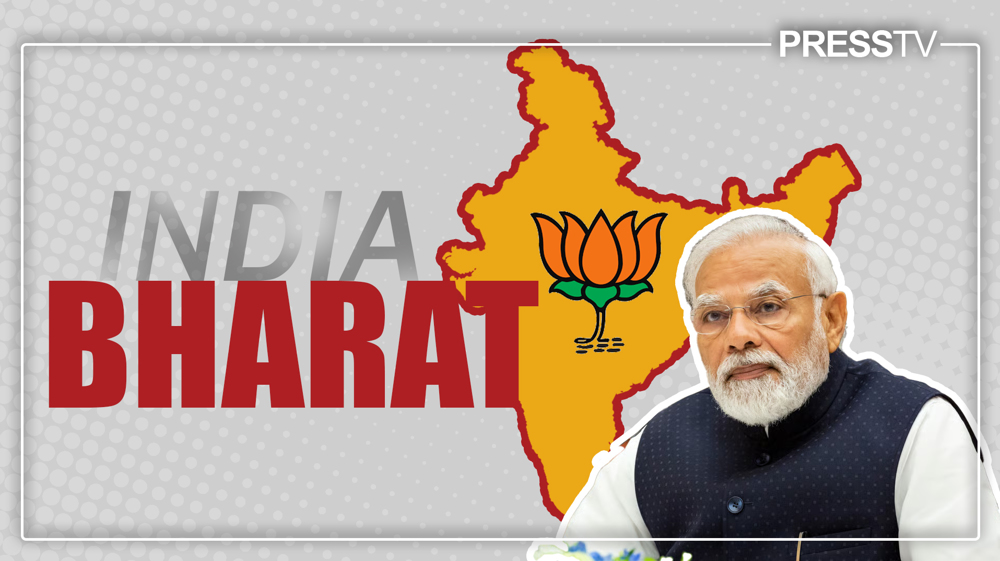

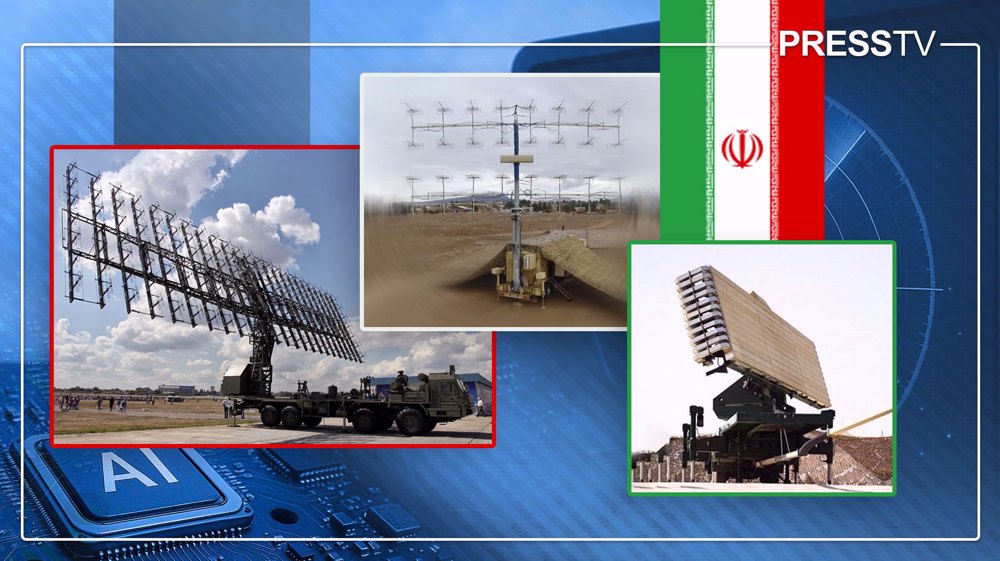
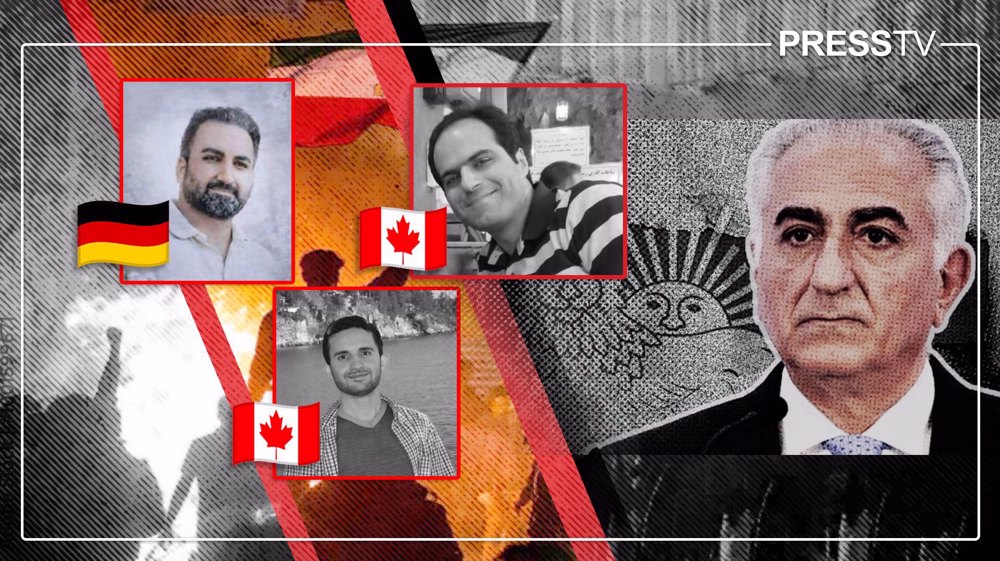



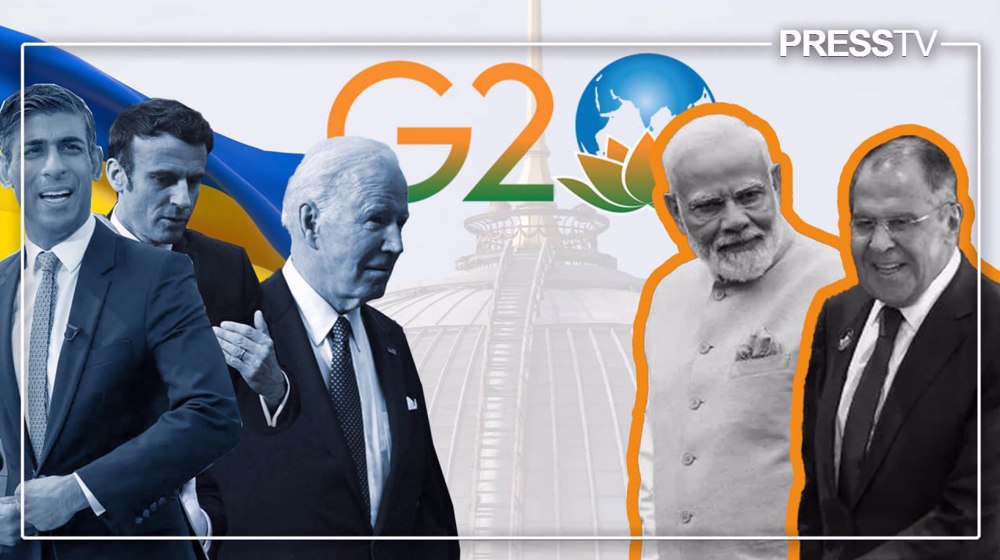
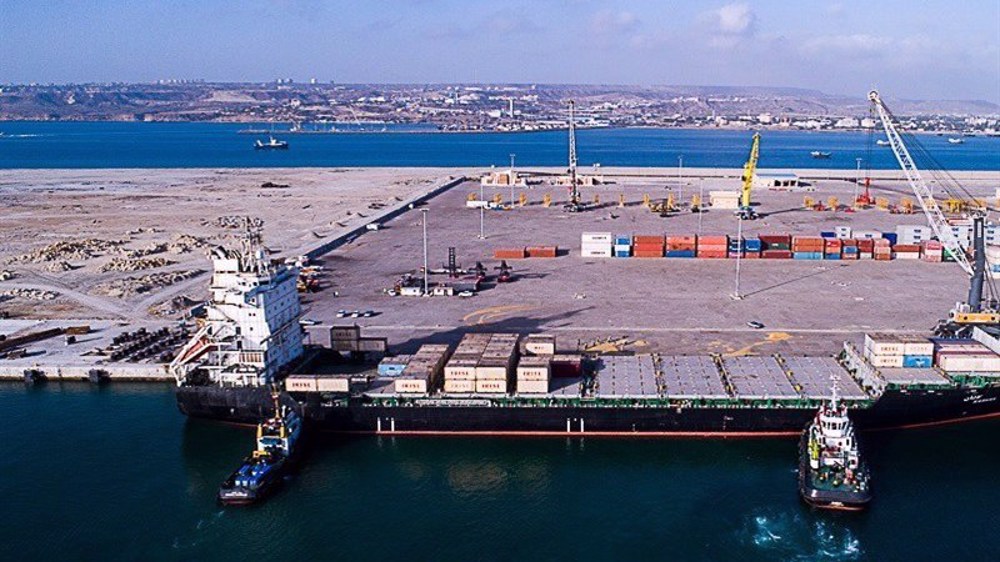

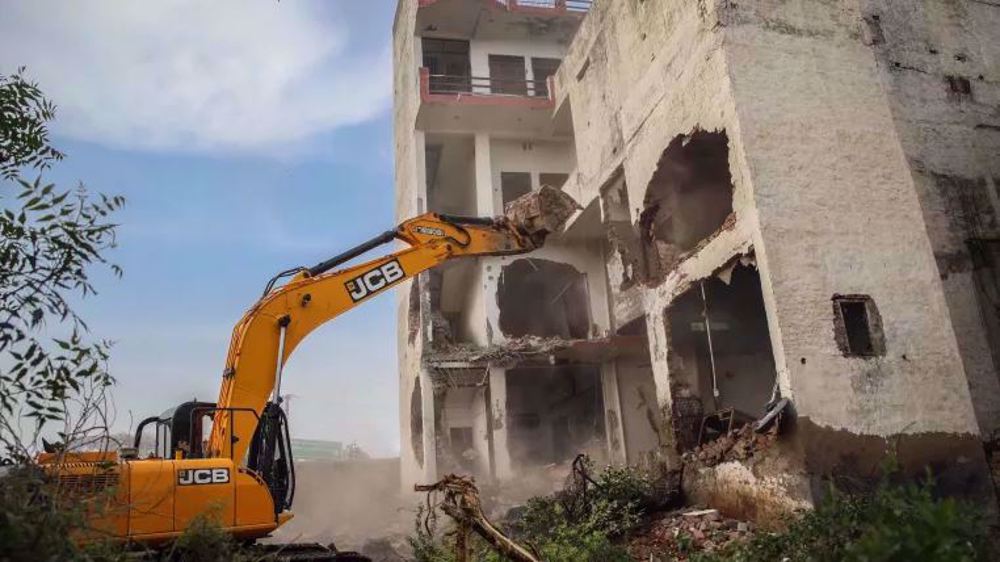
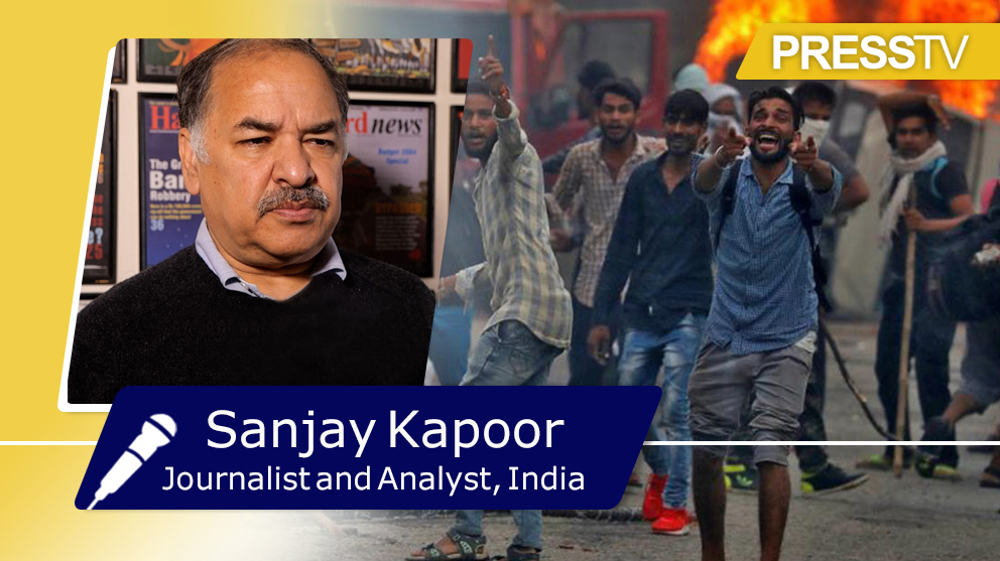

 This makes it easy to access the Press TV website
This makes it easy to access the Press TV website